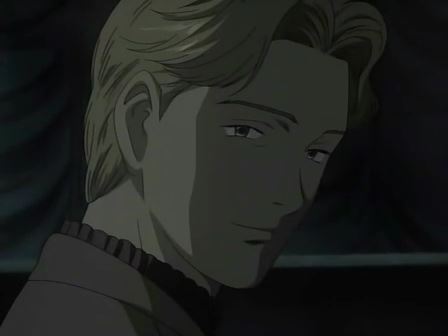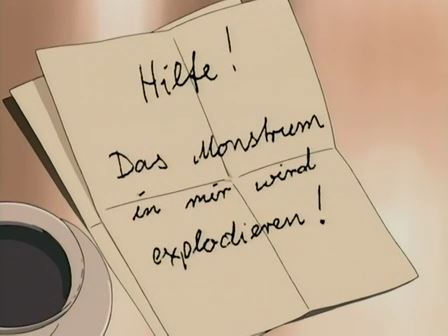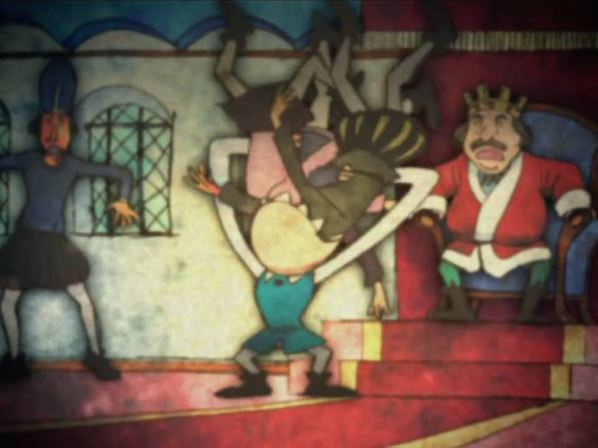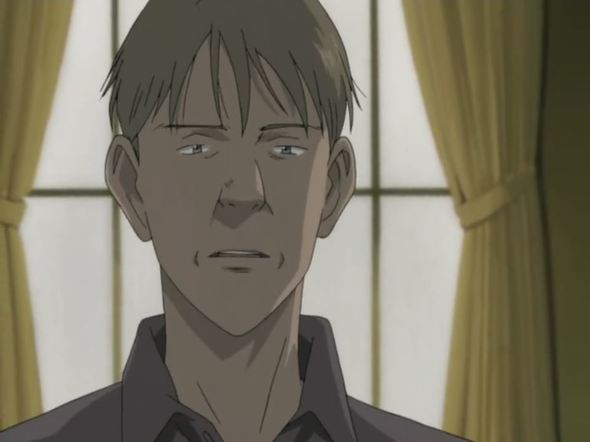|
by Radhikaa Sharma I had been thinking of writing about this for ages. I kept putting witty-sounding lines together in my head, thinking of them faster than I discarded them, without ever putting a word on paper. I kept putting it off. College, and exams, and more college kept getting in the way, and when I finally began to write about the series that made me fall in love, I realised it had been ages since I had last watched it. So when I sat down to finally write, I began watching Monster for the third time. When I'd begun watching Monster, the first thing that drew me in was its sinister undertone, pervading even the most harmless of scenes. When you begin to watch Monster, you can feel the melancholy and the malice (respectively) portrayed by the two main characters build progressively through the story. Even as the antagonist Johann leaves a horde of senseless destruction in his wake, Doctor Tenma, the idealist, too-good-to-be-real wonder surgeon tries to bring Johann to justice and bring balance to the world. The music- especially the opening score and the title track- are hauntingly beautiful, and will be stuck in some corner of your head for quite a while. The animation itself may be dated, but fits quite well into the zeitgeist of the tale portrayed. Naoki Urasawa put painstaking effort into the tiniest details, making the story fit perfectly into the post-Berlin-Wall Germany. However, even though the story is as realistic as animes go, Urasawa's characters lack the moral shortcomings and pettiness that humanise them, and can get too extremist at times. The narration sometimes gets slow, and the character development is somewhat confusing. But it still manages to be my favourite anime. And it's not for its graphic quality, perfect storytelling, or how much I could relate to the characters. (Other than the protagonist's obvious hotness,) The thing that made me watch 74 episodes of this show in about four days is that it takes a small ordinary occurrence, and shows us how it precipitates events that are so entirely beyond our control. Our good doctor Tenma, [SPOILER] by having saved the life of a critically injured sociopathic genius, indirectly feels responsible for his reign of terror over all of Germany. Even more so, because he chose to operate on that particular patient, even though he was supposed to be treating another. And here's where we see how frightening it is when we are faced with the consequences that our actions could possibly have. Like a stack of dominoes, one wrong move could start a revolution or bring down empires. All of us making hundreds of tiny decisions, consciously and unconsciously, all day long, but one wrong move, and ten years down the line, Tenma is faced with a lifetime of guilt, remorse and penitence. He is perfect- a little too perfect, with no greys in his unblemished character. He makes no mistakes, and hurts no one. This irked me a lot, till I thought, maybe it just highlights the gravity of the cross that he must bear. Despite his scruples and morality, his name is tarnished and his life compromised because of one small decision, which, at that time, seemed to be the right thing to do. As he chases shadows all across Germany, tracing the steps down to his nemesis, we see another part of this story, telling us how monsters are made. Using the post WWII backdrop, Urasawa creates a eugenetic model of orphanages (Kinderheims), where children were brought up with perverted values and destructive life lessons, alienating them from any humane emotions in an attempt at "epitomization" of the Aryan race. Then comes the collection of children's books, most of which would qualify as very successful creepypastas today, and have a brilliantly dark quality in their content and illustration. "'Look at me. Look at me. The monster inside me has grown this large,' said the boy. The boy ate the king and and all the servants. Munch-munch, chomp-chomp, gobble-gobble, gulp." The storyline shows us a few people who survived the terror of this upbringing- Johann- the serial killer who Tenma seeks to stop- is the prime villain and the brightest student of the experiment, who revels in anarchy and seeks supreme dominance. The psychological experiments inflicted upon him only heightened his psychosis, as he delightfully brought down the orphanage he lived in, driving all its residents to kill one another. His presence on screen is brief, but his aura and power are the force that drive the story forward, becoming the point the plotline converges around. Roberto, Johann's henchman and unflinching admirer, is a killing machine, who lives and dies in admiration of his hero. However, as the story reveals, Roberto used to be Adolf Reinhardt, a mild-mannered boy who "hated to hurt even insects and loved hot cocoa". It was so easy to hate Roberto, till I knew Adolf Reinhardt. This revelation drives home the terror of the Kinderheim, and explains further the reasons behind the creation of the Monster. Wolfgang Grimmer is the only survivor from the Kinderheim experiment who doesn't use lethal force for personal gain. He is emotionally crippled and has severe personality disorders, but tries his best to live his life, uncovering the truth behind the child abuse camouflaged as experimental genetics in the old regime. Even as these three escaped the tyranny that caused them to forget even their own names, all of them sought different paths in life, with startlingly different endings. Maybe our choices can take us down paths we never expected,but maybe they also help us create new options where there were none before. Maybe, Monster just taught me that there are no monsters at all- or that, in the end, there is a tiny bit of the monster in us all. But this is far from the end. I just finished the 7th episode- and I don't think I'm sleeping tonight.
Follow us on Facebook and Instagram to be notified whenever we release new articles.
Do you use an RSS reader? Even better!
1 Comment
Leave a Reply. |
Categories
All
Archives
December 2022
|




 RSS Feed
RSS Feed
